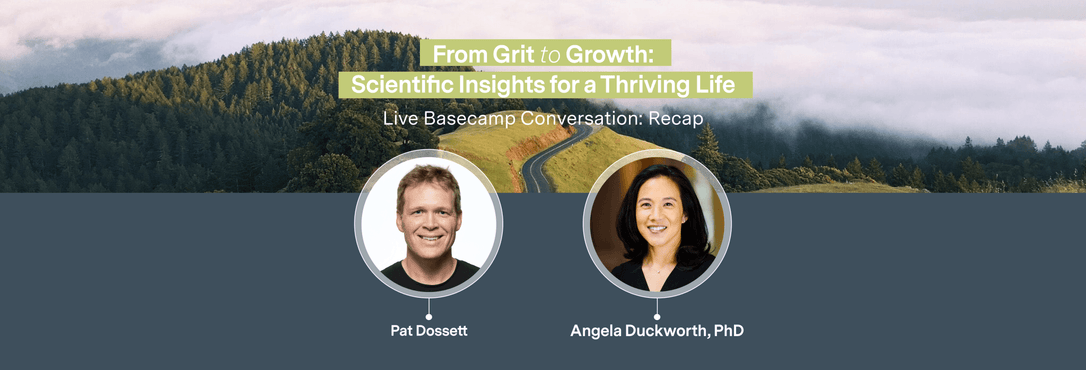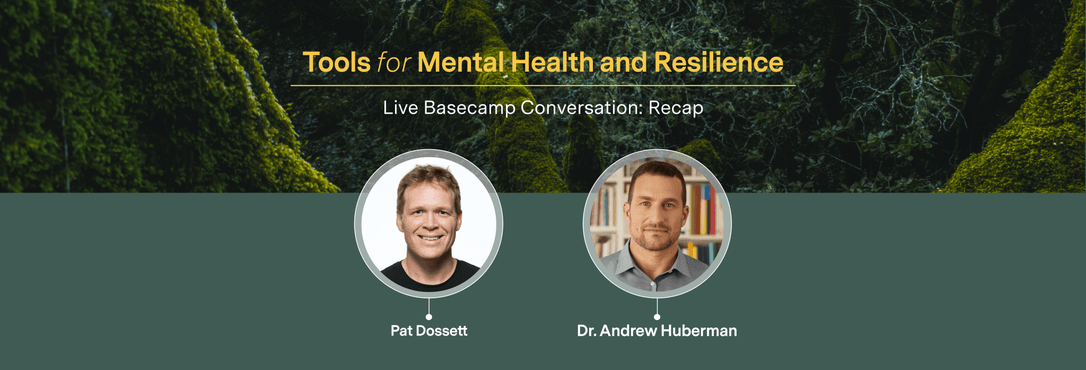On February 15th, Pat Dossett and Dr. Andrew Huberman hosted an Instagram Live to have a conversation with Paralympic Gold Medalist, former Navy SEAL, and Madefor Advisor, Dan Cnossen. We got a peek into Dan’s personal Olympic Mindset as he prepares to head to the winter games in a few weeks; he gave tips for mastering your mindset, explained how day-to-day tasks build into long-term success, and discussed the importance of ritual.
Winning Isn’t Everything, Not Winning Presents Opportunities
The conversation began with Pat recounting a prior conversation he had with Dan about medaling and performing. Pat had asked Dan if it’s ever been about performing and trying to get a medal to which Dan admitted that it's hard not to get caught up in the medals and winning in the 10 years he’s been competing on the US Paralympic Cross Country and Biathlon teams. To combat that, Dan had to get back to the fundamentals of why he got involved in competing in the first place – simply because he loved skiing and being out in nature.
“I’ve spent more time not winning than I ever have winning…being in the non-winning space makes you a better person.”
~Dan Cnossen
Over the 10 years, Dan has spent more time not winning than winning. He believes not winning allows you to learn a lot about struggling, striving, and the ultimate quest. You learn to focus on the process. Being in the not-winning space makes you a better, stronger person.
The race Dan is most proud of surprisingly wasn't when he won gold. In the 2018 Paralympic Winter Games, Dan went into the competition as an underdog of sorts; there were no expectations for him to win. He won the first race of six. He went to the next day's race, the hardest and hilliest race of the six, knowing what parts of the course would be most difficult, and planned accordingly. Dan had not, however, accounted for the condition the snow would be in after the skiers before he did the course. By the time Dan hit a big turn that would give him a good momentum for going over one of the biggest hills in the race, he did a curve too fast because the snow was slick and crashed.
After crashing, Dan noticed he was bleeding but able to ski. He then began to quickly think about all of his options, in essence, he reset in real-time. He was losing more and more time quickly, a bit injured, and still had 36-minutes left of the 50-minute course and had four more races to go. He considered backing out of this race but got up and began skiing at a 75-percent effort. It was then that a coach on the side yelled out for him to go and he kicked it up to 100-percent effort, later going all out in the last lap of the race. Dan reset himself back to his initial mindset and worked hard to come back, and ended up taking second despite being set back.
The Recipe: Process, Mindfulness, and Letting Go
Dr. Huberman told Dan he believes he’s a master of putting things into a process. Dan laughed and said he wasn’t sure about that, but he does believe in the importance of making a process and it’s something he used to get through SEAL training and beyond. Dan advised that when approaching a monumental task, you can’t think too far ahead. You need to shrink it down to what’s right in front of you to make it to the next evolution. He breaks down a big goal into smaller parts. You have to figure out what you can do in the day-to-day to achieve a long-term goal. Dan said that to get automaticity he uses rituals. He also practices every day as if it’s a competition and he competes as if it’s practice. This keeps him in the zone and also manages nerves during competition. Dr. Huberman added that ritual starts to anchor the nervous system, reducing stress and anxiety.
Two additional things that contribute to Dan's Olympic Mindset:
1. The first is just having a practice of mindfulness in your life. Be present and check in with yourself. If you start to get stressed, go back to the breath. Stop, take a few breaths, reframe the situation, and move forward.
2. The second major contributor to Dan's mindset is to understand what you have no control over, and then let it go. Don't focus on what you can't control, keep your focus on what you control.
Dan closed with some insightful last words in summation. We all take falls despite all the prep and training we do. Not just in a competitive sense but in everyday life. When the fall happens, focus on what you can control and how you respond. Learn from the fall, but don’t beat yourself up over it. Most importantly, at the end of the day, remember why you’re doing what you’re doing. That’s where you’ll find your bliss.
Watch the full 30-minute conversation on our Instagram here.



